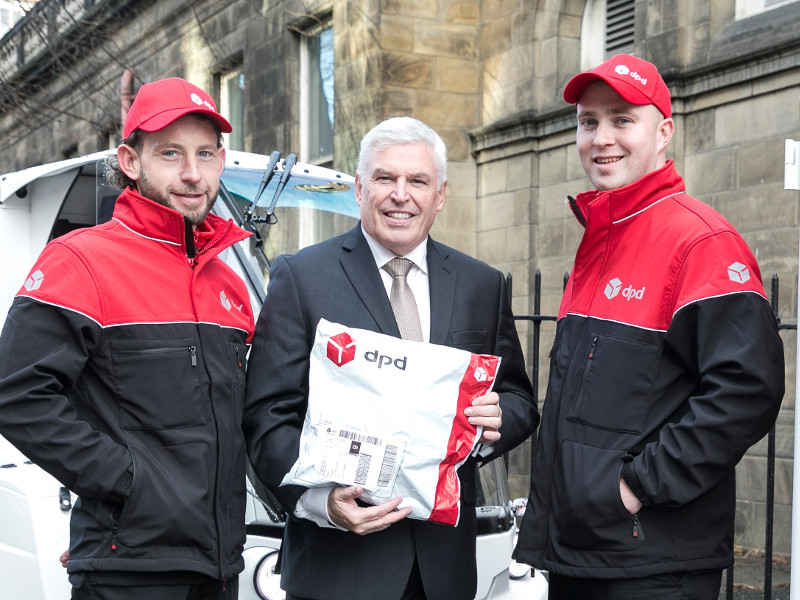New research indicates many European workers would take a 10pc pay cut in order to work flexibly and to help fight climate change. We talk to Ricoh Europe’s Gary Hopwood about how workers are increasingly choosing employers and workplaces based on values.
A study by Ricoh Europe last week revealed that more than a quarter (28pc) of European workers would be willing to take a 10pc pay cut to work for an employer that is committed to helping solve issues such as climate change and inequality.
The study of 3,000 European workers found that two thirds (65pc) of workers expect their employers to be part of the solution for such societal issues, while 63pc say employers should harness profitability gains from automation technology to re-invest in its people and community.
“83pc of Irish workers believe they could be more efficient given the right technology to enable mobile workstyles”
Almost a third (32pc) of European workers also revealed they would be willing to take a 10pc pay cut to work for an employer that embraces more flexible working. Furthermore, 64pc revealed that they expect to be able to work more flexibly with more convenient hours and the tools to work remotely.
The research found that more than three quarters (78pc) believe their employer should provide the tools they need to work with colleagues, regardless of their location. Seventy-four per cent say that as technology improves to automate tasks, employers need to empower workers to achieve a better work/life balance.
However, the majority of workers are sceptical of their employer’s intentions. Sixty-five per cent believe their employers will use automated technology to increase profits and cut jobs. Respondents also predicted that the workforce as they know it will drastically change with 34pc expecting to work collaboratively with robots or Artificial Intelligence in the next five years.
The agile, value-driven workplace
We spoke to Gary Hopwood, managing director of Ricoh Ireland, about these trends.
What is driving the penchant towards flexible/remote working, is it life commitments and a desire for work/life balance or how much of it is actually driven by climate concerns?
It’s twofold. People’s priorities have shifted with personal values and ethics more important than ever when it comes to deciding on a choice of employer. The fact that people are willing to take a pay cut to work for a company that is helping to solve societal issues highlights how concerned they are about climate change. It’s on the public agenda and we’re noticing that the personal and professional worlds of staff are continuing to blur – they want to see sustainable, eco-friendly approaches adopted in all facets of their lives. If the demand for flexible working was solely about work/life balance, they wouldn’t be swapping their takeaway coffee cups for reusable ones and using public transport rather than taking a car to work. However, being able to achieve a work/life balance is also important for people in terms of their ability to work how, where and when they want. Having such flexibility enables them to not only maintain their life commitments but also uphold their dedication to work and make an impact within society.
Should countries consider financial schemes such as tax rebates or carbon credits for employers that enable/allow flexible working for employees?
Anything that incentivises employers to empower their staff and enable flexible working is a positive thing. However, I think the missing piece of the puzzle in this area is actually education. I don’t think business leaders are fully aware of the benefits of bespoke, agile workstyles. Not only does it allow employees to work from various locations and on the move, it also increases productivity and business performance. Another obstacle is that employers are trying to accommodate the needs of four different generations in the workplace, all of whom have different expectations. It’s not a one-size-fits-all approach and I think that can be daunting. The key is to listen to people, be flexible and find out what your staff need before identifying and providing the tools or strategies to meet these demands. That could mean having a small office space for those who like to work in that environment, whilst also offering remote working tools to those who are on the road five days a week and installing a unified communications systems for those teams who are working with people across the country or globe.
Is the trust there for employers to fully allow workers to embrace flexible working?
Like I said, I think employers need to understand the benefits of enabling flexible workstyles for team members, such as increased output and great efficiency – in fact, our Economy of People research from 2018 found that 83pc of Irish workers believe they could be more efficient given the right technology to enable mobile workstyles. So it’s not that people want to do less, they simply want to achieve more with their time. Business leaders need to facilitate this. Of course, it’s not solely about output either, flexible working also supports effective decision-making, promotes wellbeing, encourages collaboration and establishes trust among workers. Moreover, employers will see the impact of embracing agile workstyles in their customer service levels, business output and company performance.
Main image at top: Niti K. on Unsplash
Written by John Kennedy (john.kennedy3@boi.com)
Published: 30 October, 2019







